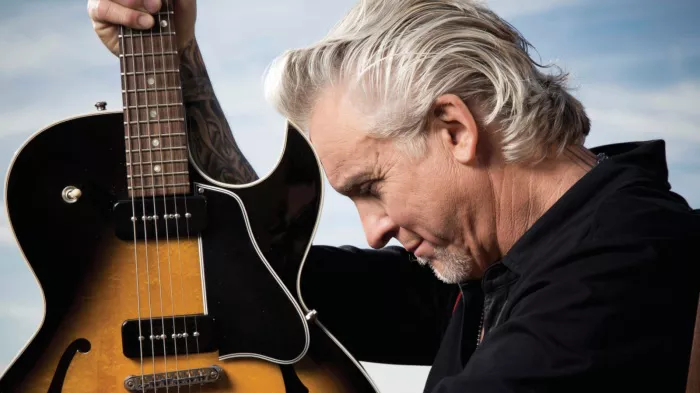The landscape of music festivals is vast and varied, spanning genres and decades, but a pivotal question often arises among enthusiasts and historians: what was the first rock festival? To answer this, we must delve into the origins of rock music festivals, exploring significant events that set the stage for this revolutionary cultural phenomenon.
Introduction to Rock Festivals
Rock festivals are large-scale events featuring multiple bands or artists, typically over several days, celebrating rock music and its diverse subgenres. These festivals are not just concerts; they are cultural gatherings that foster a sense of community among attendees, offering a shared experience centered around the music.
Defining a Rock Festival
Before identifying the first rock festival, it’s essential to define what constitutes a rock festival. Several key characteristics include:
Multiple Performers: A lineup featuring various artists or bands.
Extended Duration: Events lasting multiple days or featuring performances over an extended period.
Outdoor Venues: Typically held in open-air settings, such as parks or fields.
Cultural Impact: Significant influence on the music scene and culture.
The Roots of Rock Festivals
To understand the inception of rock festivals, we must look at the historical context and the evolution of live music events. Preceding rock festivals, there were jazz and folk festivals that laid the groundwork for large-scale music gatherings.
1. Newport Jazz Festival (1954)
The Newport Jazz Festival, established in 1954 in Newport, Rhode Island, is often cited as the precursor to rock festivals. It was one of the first major music festivals, drawing large crowds to see jazz greats like Miles Davis and Duke Ellington. This festival demonstrated the viability of large-scale music events and set a precedent for future festivals.
2. Newport Folk Festival (1959)
Following the success of the Newport Jazz Festival, the Newport Folk Festival emerged in 1959, showcasing folk music talents such as Bob Dylan and Joan Baez. This festival bridged the gap between folk and rock music, influencing the burgeoning rock scene.
3. The Monterey International Pop Festival (1967)
Many music historians consider the Monterey International Pop Festival, held from June 16 to June 18, 1967, as the first rock festival. This landmark event took place in Monterey, California, and featured a stellar lineup, including Jimi Hendrix, The Who, Janis Joplin, and Otis Redding.
Significance of Monterey
The Monterey International Pop Festival is often hailed as the birthplace of the rock festival for several reasons:
Diverse Lineup: The festival showcased a mix of rock, pop, soul, and folk artists, reflecting the diversity of the 1960s music scene.
Cultural Milestone: It embodied the countercultural movement of the 1960s, promoting peace, love, and music.
Breaking New Ground: The festival was a launching pad for several artists who went on to become legends, such as Jimi Hendrix, whose performance included the iconic guitar-burning stunt.
Influential Performances: Memorable performances by The Who, Janis Joplin, and others set a new standard for live music.
4. Woodstock (1969)
While Monterey holds a significant place in history, Woodstock, held from August 15 to August 18, 1969, in Bethel, New York, is often more widely recognized. Woodstock was a monumental event, attracting an estimated 400,000 attendees and featuring performances by Jimi Hendrix, The Who, Janis Joplin, and Santana, among others.
Impact of Woodstock
Woodstock is often considered the archetype of rock festivals due to its sheer scale and cultural impact:
Massive Attendance: The unprecedented turnout solidified Woodstock’s place in history.
Cultural Symbol: Woodstock became synonymous with the 1960s counterculture and the ideals of peace and love.
Legendary Performances: Iconic performances, such as Jimi Hendrix’s rendition of “The Star-Spangled Banner,” remain etched in music history.
Documentary Film: The Woodstock documentary, released in 1970, brought the festival’s experience to a global audience, further cementing its legacy.
Other Early Rock Festivals
While Monterey and Woodstock are often highlighted, several other early rock festivals contributed to the genre’s development and popularity.
1. Fantasy Fair and Magic Mountain Music Festival (1967)
Held a week before Monterey, the Fantasy Fair and Magic Mountain Music Festival took place on June 10-11, 1967, in Marin County, California. Featuring acts like The Doors and Jefferson Airplane, it is sometimes overlooked but was crucial in shaping the rock festival format.
2. Miami Pop Festival (1968)
The Miami Pop Festival, held in May 1968, featured Jimi Hendrix, The Mothers of Invention, and Blue Cheer. Though not as well-documented, it was a significant event in the rock festival timeline.
3. Isle of Wight Festival (1968)
The Isle of Wight Festival, first held in 1968 on the Isle of Wight in England, grew to become one of Europe’s premier rock festivals. The 1970 edition featured performances by Jimi Hendrix, The Doors, and The Who, drawing massive crowds and solidifying its place in rock history.
Legacy of the First Rock Festivals
The early rock festivals laid the foundation for the modern music festival landscape. They demonstrated the potential for large-scale music events to bring people together and create lasting cultural impacts. The legacy of these festivals continues to influence contemporary festivals worldwide.
Modern Rock Festivals
Today’s rock festivals, such as Coachella, Glastonbury, and Lollapalooza, owe much to the pioneering events of the 1960s. These festivals continue to celebrate the spirit of live music and cultural unity that defined the early rock festivals.
See Also: 20 Greatest Glam Rock Artists
Conclusion
While there is debate among historians about which event can definitively be called the first rock festival, the Monterey International Pop Festival in 1967 is a strong contender due to its groundbreaking lineup, cultural significance, and lasting impact on the music festival landscape. Woodstock, with its massive scale and enduring legacy, also holds a pivotal place in the history of rock festivals. Together, these early festivals shaped the way we experience live music today, leaving an indelible mark on the cultural fabric of the rock genre.

